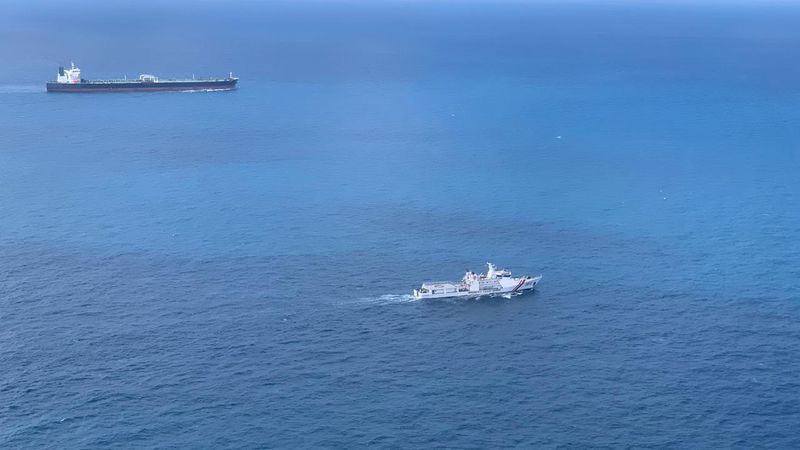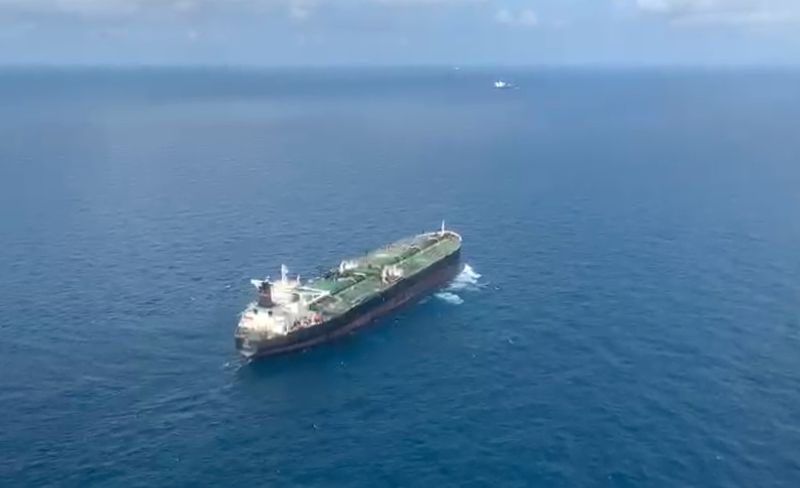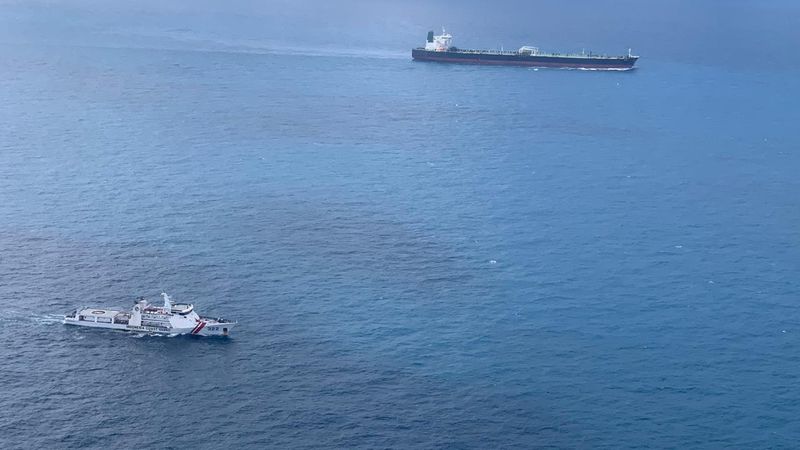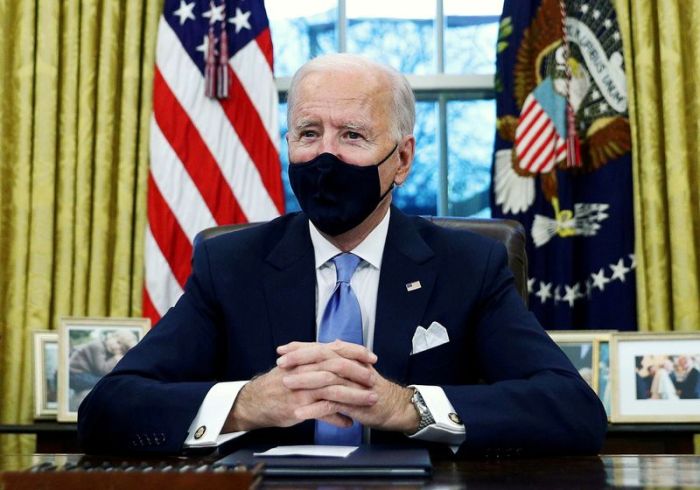JAKARTA (Reuters) – The Iranian and Panamanian-flagged vessels seized by Indonesian authorities for suspected illegal oil transfers are making their way to dock at Batam island in the country’s Riau Islands Province for further investigation, a Indonesia coast guard spokesman told Reuters.
The two supertankers, with crew members from Iran and China, were seized on Sunday in Indonesian waters near Kalimantan island. The MT Horse, owned by the National Iranian Tanker Company and MT Freya, managed by Shanghai Future Ship Management Co, had a total of 61 crew members onboard.
“The ships will arrive in Batam at around 3pm (0600GMT) to 4pm later today,” Wisnu Pramandita, spokesman of the Indonesian coast guard, told Reuters.
Wisnu said some of the crew remained in the supertankers, but others were being detained on coast guard ships for questioning while the investigation was under way.
Wisnu told Reuters on Monday that the ships were “caught red-handed” transferring oil from MT Horse to MT Freya and that there was an oil spill around the receiving tanker.
Iran said on Monday that MT Horse was seized over a “technical issue” and had asked Indonesia to explain the seizure.
“The ministry of foreign affairs has coordinated with the coast guard and obtained information that two motor tanker ships … are suspected of violating the law,” Indonesian foreign ministry spokesman Teuku Faizasyah said.
“Currently, further investigations are being carried out in order to obtain a more complete picture of the violations committed.”
The tankers were first detected at 2130 GMT on Jan. 23. Indonesia authorities said the two vessels concealed their identity by not showing their national flags, turning off automatic identification systems and failed to respond to a radio call.
Wisnu said that the ships were caught during a regular patrol.
The International Maritime Organization requires vessels to use transponders for safety and transparency. Crews can turn off the devices if there is a danger of piracy or similar hazards. But transponders are often shut down to conceal a ship’s location during illicit activities.
Iran has been accused of concealing the destination of its oil sales by disabling tracking systems on its tankers, making it difficult to assess how much crude Tehran exports as it seeks to counter U.S. sanctions. Wisnu said on Tuesday the seizure of the ships had “nothing” to do with the U.S. sanctions, when asked by Reuters.
Iran sent the MT Horse vessel to Venezuela last year to deliver 2.1 million barrels of Iranian condensate.
(This story corrects typo in byline)
(Reporting by Agustinus Beo Da Costa; Writing by Fathin Ungku; Editing by Ana Nicolaci da Costa)





















